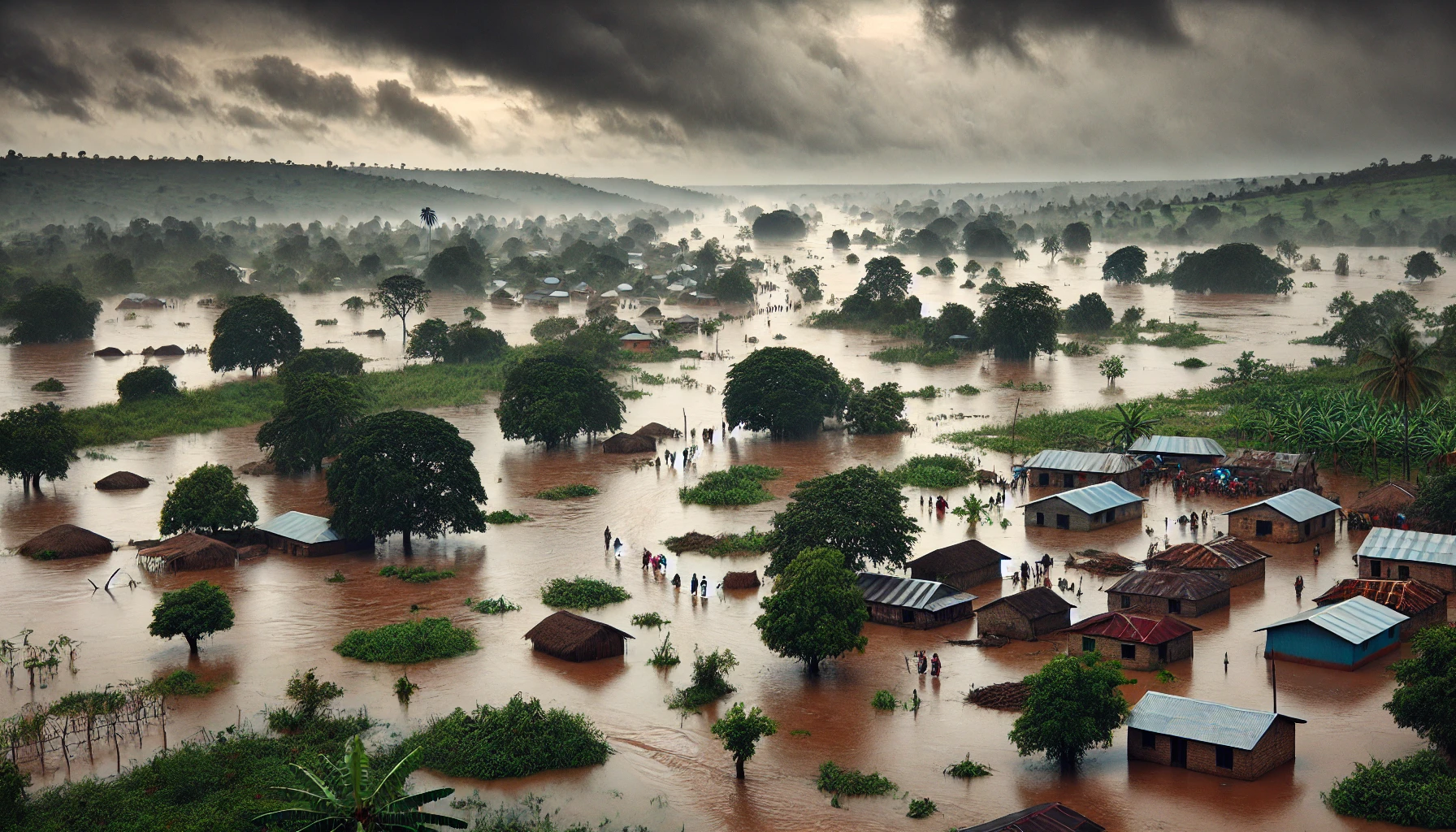Severe flooding across Cameroon, Chad, Mali, Niger, and Nigeria, worsened by the onset of the rainy season, has intensified the challenges facing refugees and internally displaced people (IDPs) in the region. The UN Refugee Agency (UNHCR) is urging the inclusion of displaced populations in national response plans to ensure their safety and access to essential services.
The floods have caused widespread devastation, destroying homes, infrastructure, and farmland, leaving refugees and IDPs in overcrowded, makeshift shelters with limited resources. The vulnerable populations are also at increased risk of waterborne diseases, food insecurity, and other protection risks.
In Nigeria, 29 of the country's 36 states have been impacted by floods, affecting over 600,000 people. At least 200 people have lost their lives, and over 225,000 have been displaced, many of whom had already been uprooted by conflict and climate change. The destruction of more than 115,000 hectares of farmland is expected to exacerbate food insecurity in a country where 32 million people are already facing acute hunger. UNHCR and its partners are distributing 10,000 tarpaulin sheets to the most severely affected displaced people, but funding shortages are limiting assistance efforts. The rainy season is expected to persist until September in the north and November in the south of the country.
Chad has also been severely affected, with all 23 provinces experiencing flooding since July. Over 964,000 people (166,000 households) have been impacted, and refugee communities in the east are particularly vulnerable, with more than 40,000 refugees affected. The floods have claimed 145 lives, submerged 251,000 hectares of land, destroyed over 70,000 homes, and killed 29,000 livestock.
In Cameroon, torrential rains between August 11 and 21 destroyed over 8,600 homes and affected nearly 159,000 people, including around 50,000 refugees. Cropland and livestock have also been severely impacted, and authorities face significant logistical challenges in responding to the crisis, including access difficulties and the risk of epidemics.
In Niger, the Maradi, Dosso, Tillabery, and Zinder regions have suffered extensive damage from the flooding, which has claimed over 217 lives and affected over 700,000 people. Roads and farmland have been destroyed, and over 39,000 children have seen their education disrupted. UNHCR has provided 3,000 relief kits, with further aid distributions planned to reach vulnerable communities.
The compounded effects of conflict, climate change, and flooding have left refugees and displaced families in a catastrophic situation. They urgently require emergency shelter, food, water, and medical care to survive.











